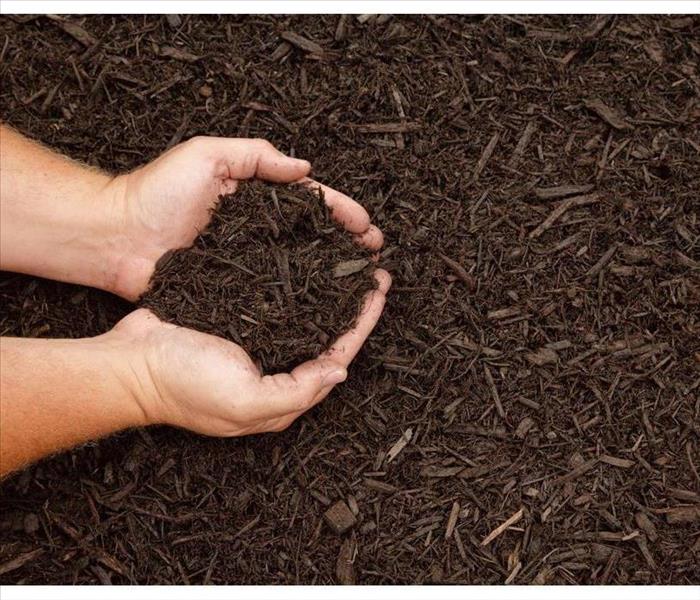4 Ways To Use Landscaping To Protect Your Home
5/1/2020 (Permalink)
 Mulch is a great way to keep the soil cool and damp, keep weeds at bay, and keep your foundation dry
Mulch is a great way to keep the soil cool and damp, keep weeds at bay, and keep your foundation dry
Four Ways To Use Landscaping
A wet basement can do more than ruin your weekend plans in Spring Hill, TN; it can lead to soggy heirlooms, unexpected repairs, and a date with your water damage mitigation company. Here are four ways to use landscaping to keep outside flooding where it belongs.
1. Rain Gardens
A garden is a beautiful way to soak up a rainstorm and keep water away from your foundation. Stick to native plants for the lowest maintenance garden project, and be sure to plant the thirstiest plants in its center. That’s where the most water will accumulate, so flora that requires less water should be placed along the outer edges to avoid oversaturation.
2. Swales
A swale is essentially a valley on your property that’s used to direct rain drainage to a more desirable location than your rec room. This lowland doesn’t stop outside flooding, however, so it’s critical to make sure your swale moves that flood water toward an area that can make use of it, such as the rain garden described above.
3. Heavy Mulch
Mulch is a great way to keep the soil cool and damp, keep weeds at bay, and keep your foundation dry. If your mulch material is too light, however, flood water will simply carry it away. This not only means an increase in flood potential, but also more raking for you. Opt for heavier mulch materials, such as stones or hardwood chips, and be sure to keep it at least six inches away from your siding to prevent moisture wicking.
4. Grass
Large, empty patches of dirt in your yard aren’t just an eyesore; they’re a liability. Your lawn needs grass — more specifically its roots — to drink up water and prevent flooding. For superior protection, don’t cut your grass too short, either, as it can weaken those thirsty roots.
Landscaping is one of your home’s best lines of defense against outside flooding. Use the contours of your yard and clever planting and planning to prevent water from entering your home.


 24/7 Emergency Service
24/7 Emergency Service